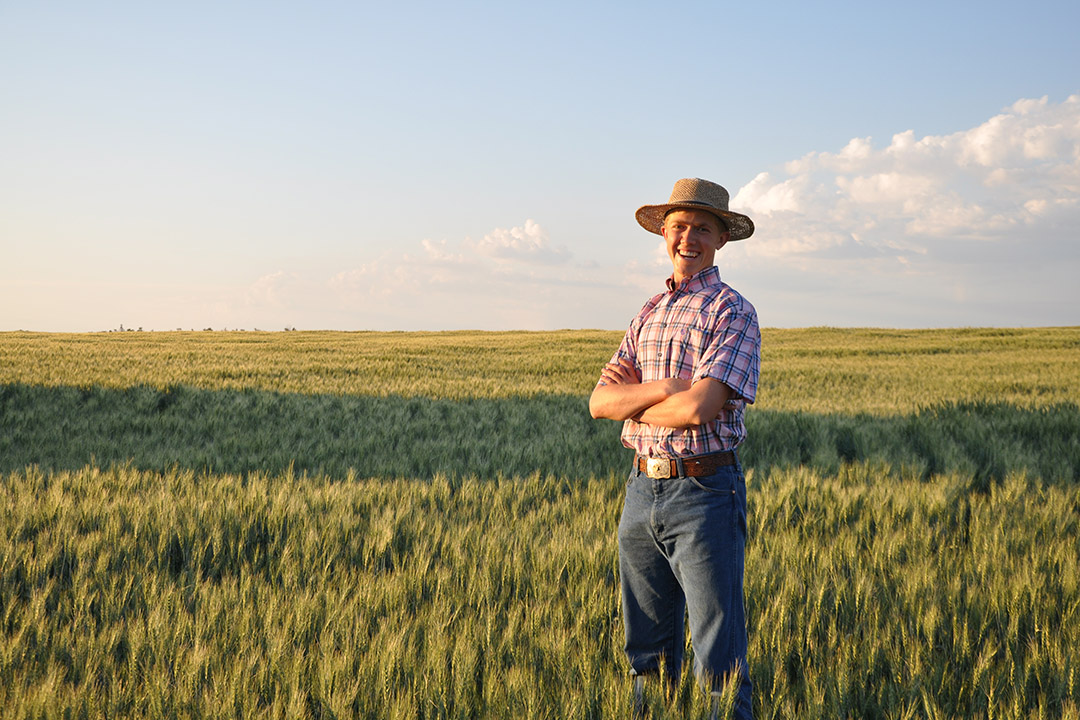
USask students poised for career success, thanks to new RBC-funded program
The University of Saskatchewan (USask) has announced a donation from RBC Foundation to help students develop professional skills, prepare for the demands of the workforce and transition to their careers with ease.
Through the RBC Future Launch initiative, a gift of $300,000 will fund a two-year pilot program at USask—the RBC Learn to Work, Work to Learn program—in partnership with the College of Agriculture and Bioresources (AgBio) and the Student Employment and Career Centre.
The program involves semi-monthly career meet-up events, through the Student Employment and Career Centre in conjunction with the University of Saskatchewan Students’ Union. Open to all USask students, these events give students the opportunity to network, meet professionals and alumni in a variety of industries, and discover career options in areas such as agribusiness and entrepreneurship; renewable resources and environmental science; government and community; science and technology; and animal science and food bioproduct production.
Additionally, Agriculture and Bioresources students have the opportunity to take an eight-month, work-integrated course, to help them develop the essential skills that students and employers have both identified as an important addition to their degrees, setting them up for a successful career start.
“In collaboration with the University of Saskatchewan, RBC is striving to help address the quiet crisis of no experience-no job, no job-no experience, affecting the now and the next generation of young leaders,” said RBC regional president Kim Ulmer. “Young people are entering the workforce at a time of profound economic, social and technological change requiring a new mix of skills. It is through innovative programs like RBC Learn to Work, Work to Learn that our young people and our country will be best positioned to thrive and prosper.”
The first RBC Learn to Work, Work to Learn course will begin on May 1 in AgBio. The three-credit class (AGRC 445.3) will help students develop transferable skills through a combination of their summer employment and ongoing course assignments. By collaborating with their employer and the course facilitator, students will be empowered to identify their own personal learning outcomes to achieve during their employment, and develop and reflect on those skills on the job.
The course has been developed by Grant Wood, assistant professor in AgBio, who said his aim is to help students grow their transferable skills—skills employers highly value like communication, customer service, time management and interpersonal skills.
Wood said that the course is unique and helps university students apply themselves in a different way, jointly working on skill-development with the support of their professor and their employer. When they graduate students are then committed to their roles as employees and active learners.
“When students interview after graduation the employer knows they have the technical skills. What they are looking for is whether students also have the communication skills, social skills, dependability and initiative to be successful in diverse workplaces. That’s what this course addresses,” Wood said.
RBC’s support will also help students with the practical applications of the job-search process, including developing a professional cover letter and resume, participating in mock-interviews, and learning how to stand out at career fairs.
Additionally, interactive workshops, mini-conferences, events and case competitions will be offered to all AgBio students to help them hone abilities in the areas of communication, professionalism, resume building, negotiation, critical thinking and networking. This includes the AgBio Challenge, a unique two-day event which empowers students from USask and other post-secondary institutions to showcase their skills in a competitive environment, solving real industry problems with innovative ideas.
Mary Buhr, dean of the College of Agriculture and Bioresources, said she is confident in the success of the program.
“We have incredible students and alumni in this college, and one of the facets of this pilot program helps bring these important groups together, allowing us to further tap into the rich expertise and experience that our industry partners are so willing to share with our students. Both the College of Agriculture and Bioresources and the Student Employment and Career Centre are uniquely positioned to execute this pilot program, which we hope will prove so successful that we can roll it out across the university.”
The program is over half-filled already and students in the college are excited to begin.
“Coming out of this course, I’m hoping to have a better understanding of what different organizations are looking for in their employees,” said David MacTaggart, a third-year crop science student who is already enrolled. “I’d like to transfer some of those skills to develop my own personal brand as I compete in the job market in the future.”

